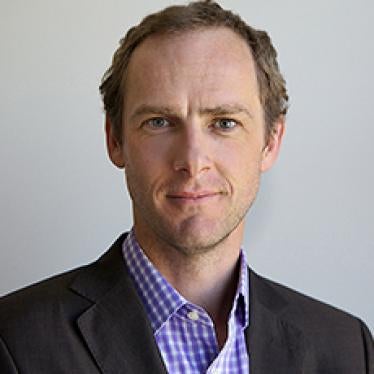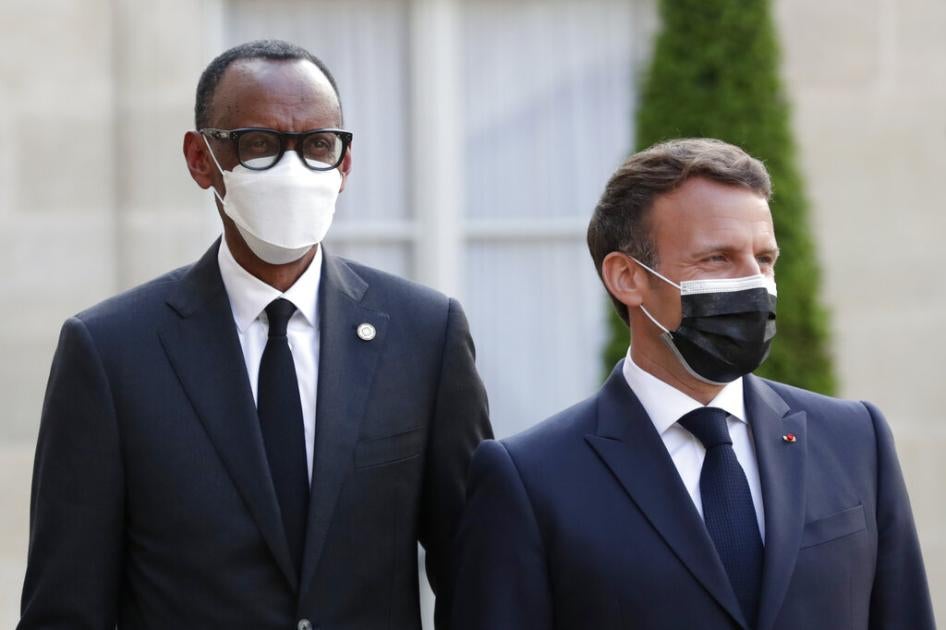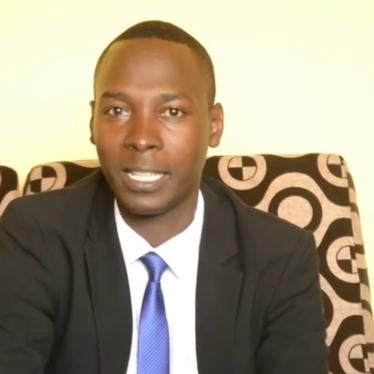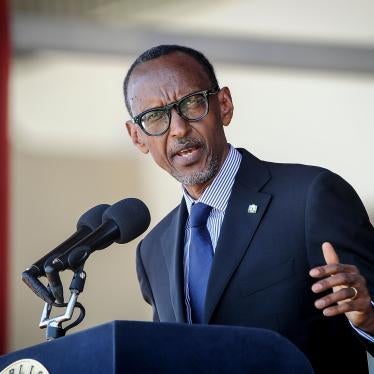French president Emmanuel Macron’s visit to Rwanda underscored the importance of facing up to responsibilities for past crimes, regardless of how long it takes. Those who bear responsibility for atrocities, whether genocide or war crimes, should take note.
Macron’s trip came after years of tense relations between the two countries. Asking for forgiveness, Macron vowed to turn over a new leaf. Last week, Kigali approved France’s choice for its next ambassador to Rwanda – the first to hold this post since 2015.
The root of these tensions goes back to the 1994 genocide in Rwanda. Orchestrated by ethnic Hutu political and military extremists primarily against ethnic Tutsi, it claimed at least half a million lives and was exceptional in its brutality, meticulous organization, and the speed with which the killings were carried out. France had backed the former extremist government in Rwanda and supported and trained its military and some of the forces that went on to commit genocide.
France has also been criticized, including by the Rwandan government, for being slow to bring genocide fugitives living in France to book. Macron, alluding to this unfinished business, said in Kigali: “acknowledging this past, is particularly to pursue the work of justice.”
Rwandan President Paul Kagame welcomed his speech, affirming: “The truth heals.” They are both right. But a selective approach to the truth will eventually catch up with them.
In Rwanda, not everyone is allowed to speak about the abuse they or their loved ones suffered during one of the darkest chapters of its history. On May 31, Aimable Karasira, an academic, genocide survivor, and government critic, was placed under arrest, accused of denying and justifying the genocide, instigating divisions, and fraud. For several months, he has repeatedly been harassed and summoned by the Rwanda Investigation Bureau for posting critical videos on YouTube speaking about his family’s history and the genocide.
An ethnic Tutsi, he says that soldiers of the Rwandan Patriotic Front (RPF) killed several of his family members in the aftermath of the genocide. Speaking about crimes committed by the RPF, which has governed the country since 1994, represents a red line most in Rwanda do not dare to cross. To be sure, RPF crimes committed in Rwanda do not match the genocide in scope and scale, but they remain horrific war crimes for which there has been no accountability.
In March, a commission established by Macron to investigate France’s role in the 1994 killings published a 1,200-page report concluding that France has responsibilities it characterized as “serious and overwhelming,” including for being blind to the preparation of the genocide and being slow to break with the government orchestrating it. A report commissioned by the Rwandan government concluded in April that the French government “bears significant responsibility for enabling a foreseeable genocide.”
But as Rwandan authorities welcome France’s efforts to face up to its role in past atrocities, they continue to ignore international crimes committed by Rwandan troops in eastern Democratic Republic of Congo. While in Paris for a summit on post-pandemic financing for the African continent, Kagame – in media interviews – batted away questions about the horrific crimes committed in Congo in the wake of the genocide. He once again dismissed a United Nations investigation into these crimes called the “Mapping Report,” published in 2010, “controversial,” “politicized,” and “highly disputed.”
The Mapping Report provides a detailed account of the UN Office of the High Commissioner for Human Rights’ investigation in Congo, documenting serious crimes committed between March 1993 and June 2003. It concludes that the majority of these crimes qualify as crimes against humanity and war crimes, including mass killings, sexual violence, attacks on children, and other abuses.
UN investigators described the role of all the main Congolese and foreign parties responsible, including Rwandan troops and the Congolese rebels they backed, who are accused of some of the most serious crimes documented in the report. The absence of justice for these crimes has been shocking, and Kagame’s remarks make abundantly clear that Rwanda’s government is not willing to hold its own accountable for crimes and abuses they commit.
Impunity for crimes committed by Rwandan state actors continues. During the same interview in Paris, Kagame dismissed concerns about the high-profile unlawful rendition of Paul Rusesabagina last August and the highly suspicious death in custody of much-loved singer and peace activist Kizito Mihigo in February 2020. Kagame is apparently unconcerned by his own justice minister’s admission, in a recorded video call, of the government’s role in Rusesabagina’s enforced disappearance, illegal transfer, and fair trial rights violations. His trial on terrorism charges began on February 17.
Over one year since Mihigo’s death, Kagame made a vague allusion to a bogus investigation, a common smokescreen tactic in Rwanda. “Everything is cleared through investigation and through the court of law,” he said. This is patently false. A credibly independent investigation is needed. Given the number of killings of political opponents both inside and outside Rwanda, it is not surprising that such an investigation has yet to be carried out.
France is on a path to grappling with its responsibilities in past atrocities, but it should go further and ensure justice is delivered. Rwanda’s rulers should reckon with their own role in both past crimes and ongoing ones. In the meantime, Macron should beware of buying into rewritten narratives about the past and redacted views of the present, and commit to speak up for human rights at home and abroad.










